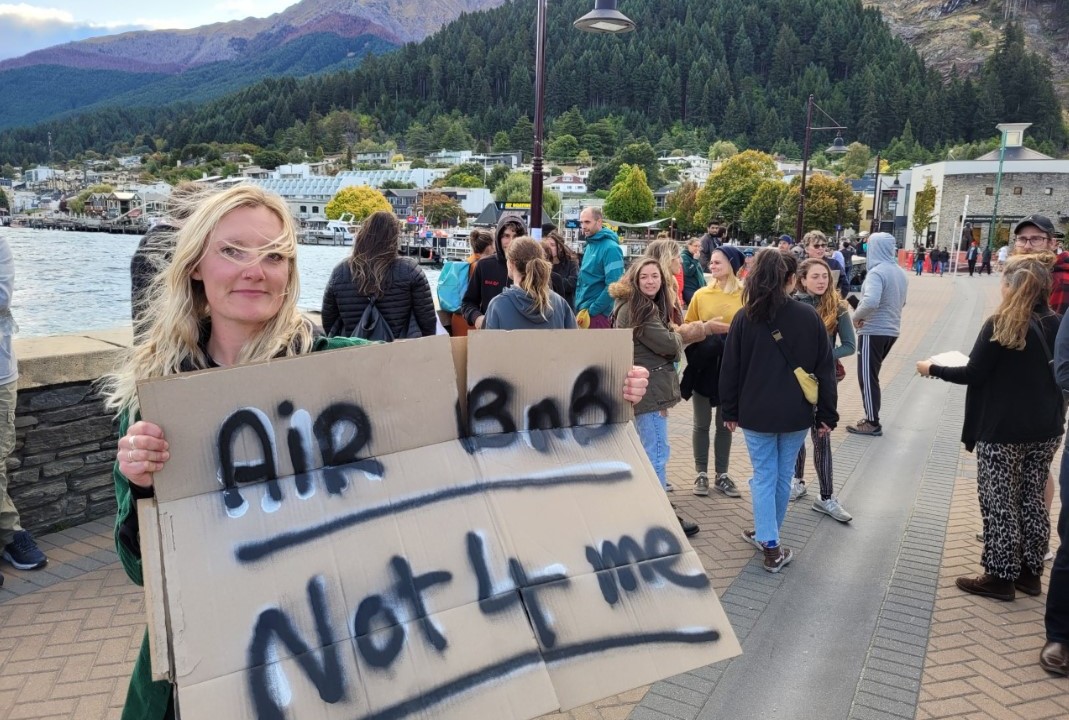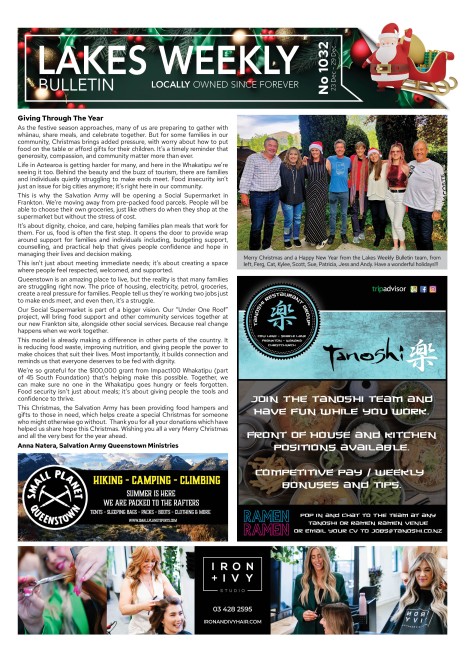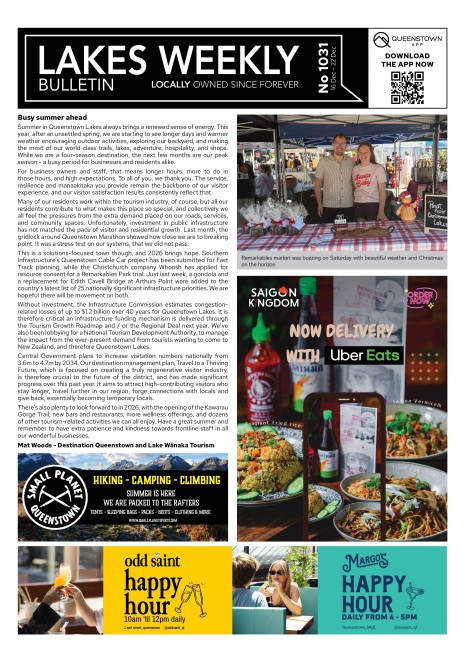Renters finding it easier

More than a year on from the public protests about Queenstown's rental housing crisis, the pressure appears to have eased but problems remain.
Last April and May, scores of people took to the streets to demand action about the lack of affordable accommodation in the resort town, which forced hundreds of fulltime workers and families to sleep in tents, cars, at friend's houses, or simply leave town.
With winter approaching and prices continuing to rise, many businesses began to offer workers staff accommodation, while Queenstown Lakes District Council debated solutions, and top politicians came to town to either face the music or offer an alternative vision.
Hannah Sullivan and Lindsay Waterfield were the faces and voices of the campaign, organising the action through the Queenstown Housing Initiative Facebook group they set up, calling for emergency housing along with more systemic change.
"I had to take a step back eventually, because it was having a real impact on my mental health," Sullivan says. "It was a lot of work, a lot of pressure, and just unsustainable really. But I'm proud of what we achieved.
"There's not as much attention on the issue this year, but there are still people struggling. You see posts on social media every day, people looking for somewhere to live, and when I go for a walk down Frankton beach each night, I see people cooking outside their vehicles. There's a street, I won't name it, where I regularly see people sleeping in cars, the windows all steamed up."
Sullivan says there do appear to be fewer workers in town this ski season, however.
"Because we were shouting about it last year, I think some people have chosen not to come, and we lost a lot of long termers, a lot of good community members, who were just sick of it.
"People didn't want to be here anymore. The housing stuff opened my eyes to the fact that they don't want people like me here, this is a billionaires' paradise. You're seeing fewer backpackers now, the shoulder season was terrible, and it's just the cost of everything. The heating bills are through the roof and a drink downtown costs $14.
"People have chosen other places. Businesses are feeling the pressure too but need to pay the wages because it's so expensive to live here. It's a vicious circle."
More supply
There are 48 rental properties currently listed on Trade Me, ranging from $400 per week for a one-bed studio in Frankton, to $2900 per week for a five-bedroom on Arrowtown-Lake Hayes Rd. Other websites, such as Roomies.co.nz, list rooms available in shared houses, anything from $250 for a single to $500 for a furnished double room.
Housemart Queenstown Ltd director Hayley Stevenson grilled Labour's then Housing Minister Dr Megan Woods when she came to town last April.
Stevenson says she's "100%" certain the rental landscape has improved since last year, with one factor the introduction of GST payments for Airbnb hosts.
"There's more than 40 properties on Trade Me and we're getting lots of enquiries from people coming off Airbnb and into long-term renting, which is great," she says.
"I think just the economy has probably had an effect, you know, the numbers in town appear to be down, the ski fields aren't as busy, so businesses don't require as many staff."
At the height of the crisis last year, more than 20 people would turn up to view some listings.
"We can put a property up for rent now and actually have nobody turn up," Stevenson says. "If it is a good quality property, and priced right, at market rate, it will still rent, but the demand isn't like it was."
Affordability is still a problem for many, however. "The rents are high here in comparison to elsewhere. Supply was one problem, but affordability is another for tenants."
Coalition's changes
Stevenson told Dr Woods that Labour's changes to the Residential Tenancy Act, specifically around ending fixed term tenancies, meant holiday property owners were no longer making their homes available to rent short-term. Census data shows 27% of houses here are empty most of the year.
That's one of the changes the Coalition Government is introducing within the coming years, allowing landlords to give 90-day eviction notices without providing a reason, or 42-day notices with a reason. It will also increase mortgage interest deductibility to 100% by 2025/26, something Labour had removed entirely. And it is changing the Brightline test.
The slight cooling off of the Queenstown Lakes property market could also help. The QV House Price Index shows the average home value increased by 0.1% in the June quarter. It's now just over $1.8 million.
Queenstown Citizen's Advice Bureau manager Barbara McDonnell says there are definitely fewer people coming in to CAB with concerns about finding accommodation.
"We still get tenancy issues, issues with landlords, and with people being evicted by the main tenant in a shared property, who have all the power, but it's not like it was, which was fairly unprecedented," she says.
"Most of the enquiries now are about work visas again, and the changes around them. That's where the stress is."









